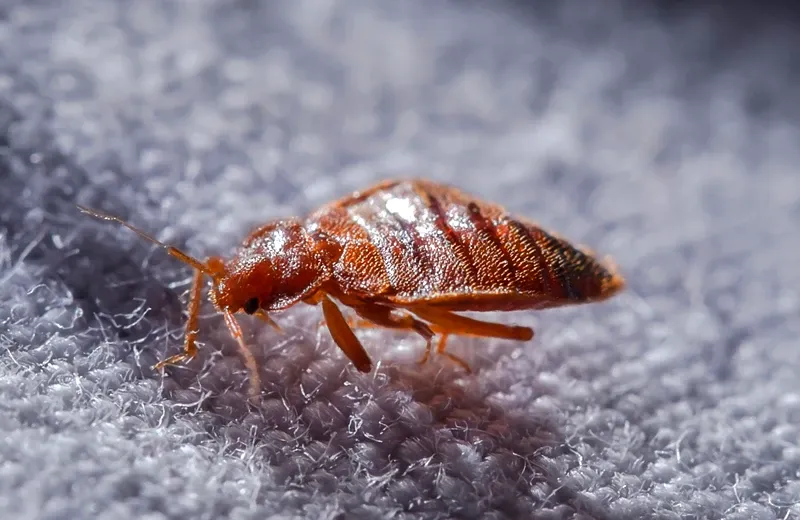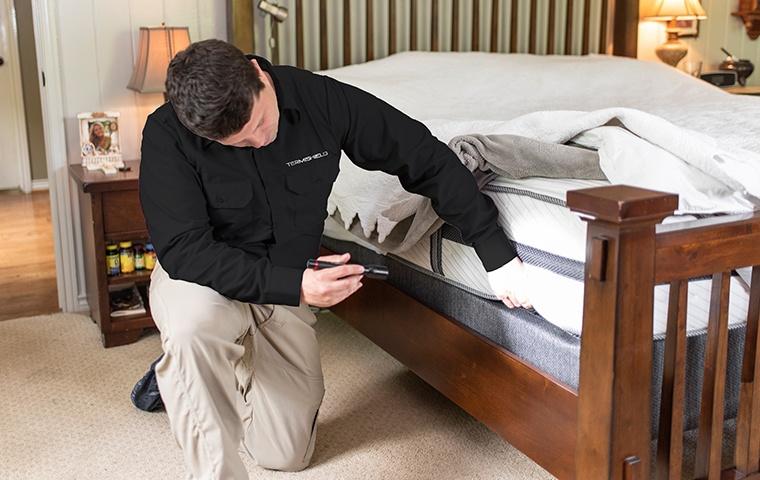Specialist Kings Bug Control Cincinnati: Your Trusted Exterminators
Wiki Article
A Malfunction of the Different Kinds of Parasite Control Solutions
In the realm of pest control, a plethora of techniques exist to battle the existence and address of undesirable creatures. As we browse through the varied landscape of pest control options, understanding the complexities of each method becomes vital in identifying the most reliable program of activity.Chemical Pesticides
Chemical pesticides are generally utilized in parasite control to efficiently eliminate a large range of insects and other bugs. These pesticides work by targeting the nerves of the insects, interrupting their normal functions, and inevitably causing their death. Making use of chemical pesticides has been a staple in the bug control industry for decades because of their performance and fast results.
Nevertheless, it is important to utilize chemical pesticides with caution as a result of their prospective dangerous effects on the setting and non-target types. Improper application or overuse of these chemicals can cause contamination, harm to valuable bugs, and resistance development in parasite populations. Therefore, it is critical to comply with safety standards and laws when utilizing chemical pesticides for parasite control.
Biological Control Approaches
Taking into consideration the prospective ecological impacts and dangers connected with chemical pesticides, organic control approaches offer a more sustainable strategy to taking care of pest populations. Biological control includes the usage of all-natural enemies, such as parasites, pathogens, and killers, to suppress insect populations. This method is commonly a lot more targeted, affecting only the particular insect types while lessening damage to valuable pests, human beings, and the atmosphere.

Once developed, all-natural adversaries can assist control pest populations constantly without the requirement for repeated applications of pesticides. Furthermore, organic control is often more affordable and can aid lower chemical resistance in parasite populations over time.

Mechanical Bug Control
Mechanical insect control includes the physical adjustment or elimination of bugs to handle their populations successfully. This approach is usually utilized along with other pest control strategies for thorough insect monitoring. One common example of mechanical bug control is making use of traps to record rodents or pests. These catches can be established up in tactical areas where parasites are known to dwell, helping to lower their numbers.
An additional mechanical approach is using obstacles such as fencings, internet, or displays to obstruct bugs from going into particular locations. By literally preventing pests from accessing a place, the likelihood of infestations or damage can be substantially decreased. In addition, hands-on techniques like handpicking parasites off frameworks or plants can be reliable for smaller-scale problems.
While mechanical insect control approaches can be labor-intensive, they provide a non-chemical choice that can be eco-friendly and solutions pest control lasting. By targeting bugs straight, mechanical control techniques can assist maintain parasite populations in check without relying on pesticides.
All-natural Solutions
Making use of natural remedies for bug control uses a lasting and eco-friendly method to handling bug populaces without considering chemical treatments. All-natural treatments entail using compounds stemmed from plants, minerals, or other naturally happening sources to prevent or get rid of bugs. As an example, growing specific herbs like basil, mint, or lavender around your residential or commercial property can drive away bugs due to their strong scents. Diatomaceous earth, a powder made from fossilized algae, can be used to combat parasites like ants, roaches, and bed bugs by dehydrating their exoskeletons.Furthermore, important oils such as tea tree oil or neem oil have insecticidal properties that can properly manage pests while being risk-free for the setting. One more natural solution is introducing beneficial pests like ladybugs or praying mantises to your yard to take advantage of harmful bugs. By incorporating these natural solutions into pest administration strategies, people can reduce their reliance on artificial chemicals and promote a much healthier, more balanced ecosystem.
Integrated Bug Administration
Integrated Pest Administration (IPM) is a comprehensive technique that incorporates various methods to effectively manage pest populaces while minimizing dangers to human wellness and the setting. IPM involves the integration of several bug control approaches such as biological control, habitat control, alteration of social practices, and making use of immune plant varieties. By utilizing a combination of these techniques, IPM aims to lower reliance on chemical pesticides, which can have unfavorable influence on environments and human wellness.One trick aspect of IPM is the emphasis on avoidance. By applying steps to avoid parasite infestations prior to they occur, such as keeping appropriate sanitation and securing entrance factors, the demand for responsive parasite control actions is minimized. Monitoring and regular evaluations play a critical duty in IPM, permitting early discovery of parasite concerns and punctual treatment.
Final Thought
In conclusion, the different types of parasite control services supply a variety of options for successfully managing parasite invasions. Organic view it control methods make use of natural killers to control parasites. Integrated Bug Management incorporates multiple techniques for a holistic strategy to pest control.Chemical chemicals are generally used in bug control to effectively get rid of a vast array of bugs and other bugs.Mechanical parasite control involves the physical control or elimination of pests to manage their populaces effectively (Kings cincinnati pest control).Using all-natural solutions for insect control offers a lasting and environment-friendly approach to taking care of bug populations without resorting to chemical treatments.Integrated Parasite Management (IPM) is an extensive strategy that incorporates numerous techniques to efficiently control pest populaces while reducing risks to human wellness and the home insect control setting.In conclusion, the numerous kinds of pest control remedies use an array of alternatives for effectively managing bug problems
Report this wiki page